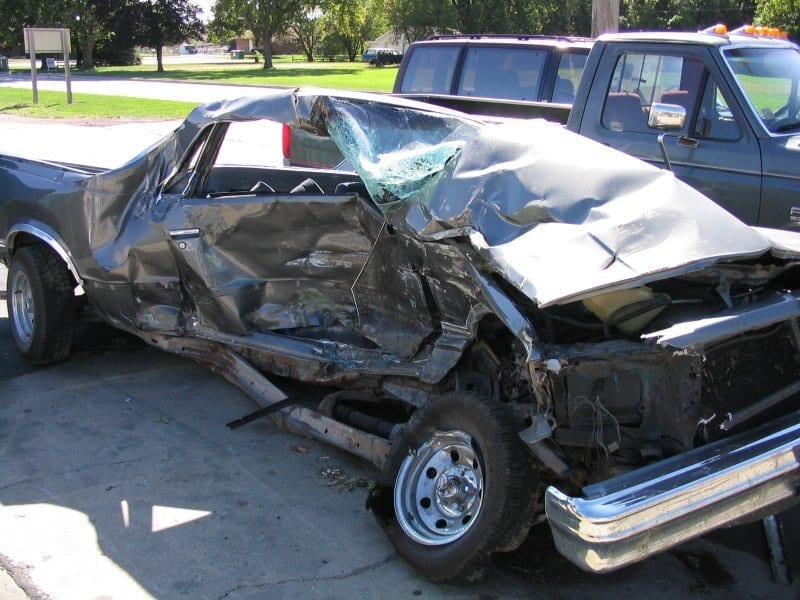Whether negotiating settlements, filing lawsuits, or representing clients in court, lawyers play a critical role in ensuring accident victims receive the justice they deserve.
When an auto accident occurs, determining legal responsibility is one of the most critical aspects of resolving the incident. Laws governing auto accidents vary by jurisdiction, but they generally focus on liability, fault determination, and compensation. Understanding these legal principles is essential for drivers, businesses, and insurers navigating the aftermath of a collision.
Liability in an auto accident typically falls into one of two categories: negligence or strict liability. In most cases, negligence is the standard used to determine fault. A driver is considered negligent if they fail to exercise reasonable care, such as running a red light, speeding, or driving while distracted. The party found to be at fault is usually responsible for compensating the injured party for medical expenses, vehicle repairs, lost wages, and pain and suffering.
Strict liability, though less common, applies in cases where legal responsibility is assigned regardless of fault. This standard is often seen in product liability claims related to defective auto parts or in accidents involving commercial transportation where certain regulatory violations have occurred.
In some cases, multiple parties may share liability for an accident. Comparative negligence laws allow for the distribution of fault among multiple parties, which can impact the amount of compensation a victim receives. Understanding these complexities requires legal expertise, particularly when disputing fault or negotiating settlements with insurers.
The Role of Insurance in Legal Proceedings
Insurance plays a central role in auto accident claims, serving as the primary source of compensation for damages. Most jurisdictions require drivers to carry minimum liability coverage, which covers damages incurred by another party in an accident caused by the policyholder. However, insurance policies vary widely in coverage limits and terms, making it crucial for accident victims to understand their rights when filing claims.
One of the most challenging aspects of dealing with auto accident claims is negotiating with insurance companies. Insurers often seek to minimize payouts by disputing liability, undervaluing claims, or delaying settlements. Victims may face significant stress when attempting to recover full compensation for their losses, particularly if they lack legal representation. In cases where an insurer refuses to offer a fair settlement, legal action may be necessary to obtain just compensation.
Underinsured and uninsured motorist coverage is another legal consideration. If an at-fault driver lacks sufficient insurance to cover damages, the victim’s own insurance policy may provide additional compensation. However, these claims often require extensive documentation and legal arguments to ensure the policyholder receives the benefits they are entitled to under their policy.
Lawyers for Auto Accidents: Their Role in Legal Claims
Lawyers for auto accidents specialize in representing individuals involved in car crashes, ensuring their clients receive fair treatment under the law. These legal professionals handle a wide range of cases, from minor fender benders to severe accidents resulting in catastrophic injuries or wrongful death claims.
One of the primary responsibilities of lawyers for auto accidents is gathering and presenting evidence to establish liability. This process includes reviewing police reports, obtaining witness statements, consulting accident reconstruction experts, and analyzing medical records. By building a strong case, attorneys improve the chances of securing fair compensation for their clients.
Legal representation is particularly valuable when dealing with insurance companies. Attorneys have the experience to counter insurance tactics designed to reduce payouts. They negotiate on behalf of their clients to ensure settlements reflect the full extent of damages, including medical bills, lost income, and pain and suffering. In cases where an insurance company refuses to offer a fair settlement, lawyers can file lawsuits and represent clients in court.
Another critical aspect of legal representation is ensuring compliance with statutory deadlines. Personal injury claims related to auto accidents are subject to statutes of limitations, which vary by state. Failure to file a claim within the required timeframe can result in the loss of the right to seek compensation. Attorneys ensure that all necessary legal actions are taken within the appropriate deadlines to protect their clients’ interests.
Navigating Litigation and Settlement Negotiations
Many auto accident cases are resolved through settlement negotiations rather than court trials. Settlements provide a faster resolution to disputes and allow victims to recover compensation without the uncertainty of litigation. However, achieving a fair settlement requires a strong legal strategy and the ability to present compelling evidence.
During negotiations, attorneys work to demonstrate the full impact of the accident on their client’s life. This includes not only immediate medical expenses and property damage but also long-term consequences such as ongoing medical treatment, rehabilitation costs, and emotional distress. Skilled legal representation ensures that victims are not pressured into accepting lowball offers that fail to cover their true losses.
If a case proceeds to litigation, attorneys present evidence in court to establish liability and prove the extent of damages. This may involve expert testimony, accident reconstructions, and medical evaluations. While trials can be time-consuming, they may be necessary in cases where liability is heavily disputed or when settlement offers are insufficient.
The Legal Protections Available to Accident Victims
Auto accident victims have several legal protections to ensure they receive fair treatment and just compensation. These protections include the right to seek damages from at-fault parties, access to medical treatment, and legal recourse in cases of insurance bad faith.

In addition to compensation for tangible losses, victims may also seek damages for emotional distress and loss of quality of life. Courts recognize that the effects of auto accidents extend beyond physical injuries, and legal claims often include compensation for psychological trauma, pain and suffering, and reduced earning capacity.
Legal protections also extend to ensuring that accident victims receive adequate medical care. In cases where immediate medical treatment is required but financial constraints prevent access, attorneys can assist in arranging treatment agreements with medical providers, allowing victims to receive care while their legal claims are processed.
Why Legal Representation is Essential
Navigating the legal landscape of auto accidents can be complex, particularly when dealing with insurers, liability disputes, and legal deadlines. Having an experienced attorney can make a significant difference in the outcome of a claim. Legal representation not only increases the likelihood of obtaining fair compensation but also alleviates the stress of handling claims and legal proceedings independently.
Whether negotiating settlements, filing lawsuits, or representing clients in court, lawyers play a critical role in ensuring accident victims receive the justice they deserve. With a thorough understanding of personal injury law, legal professionals guide their clients through every step of the process, protecting their rights and advocating for their best interests.


Join the conversation!